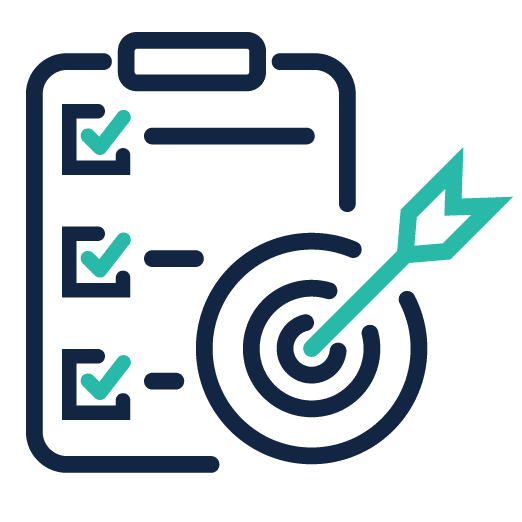
Sales teams are often burdened with manual data entry, disconnected CRM systems, and a lack of real-time visibility into customer and sales data. Flowgear helps sales teams by integrating CRM, ERP, and other sales tools to streamline processes, improve data accuracy, and enable better decision-making.
Enable seamless data sharing across your organization with a single source of truth.
Sales teams are often burdened with manual data entry, disconnected CRM systems, and a lack of real-time visibility into customer and sales data. Flowgear helps sales teams by integrating CRM, ERP, and other sales tools to streamline processes, improve data accuracy, and enable better decision-making.
Enable seamless data sharing across your organization with a single source of truth.
Integrate sales systems with CRM, ERP, and Finance platforms to manage opportunities, track pipeline progress, and synchronize account details.
Seamlessly connect sales systems with customer platforms for quoting, invoicing, and customer engagement.
Capture financial data from flat files and transfer it directly to your financial systems.
Automatically process incoming flat files in real-time, allowing for faster financial reporting and reconciliation.
Automate the entire data capture process to eliminate human errors, ensuring consistent and accurate data across all systems.
Integrate CRM systems (e.g., Salesforce, HubSpot) with your ERP or other platforms to automatically sync customer data, sales orders, and quotes, eliminating manual data entry and ensuring accuracy.
Create a unified view of customer interactions by integrating CRM data with other tools like marketing platforms and customer service systems. This gives sales reps full visibility into customer history, preferences, and support interactions, improving their ability to close deals.
Automatically generate quotes in the CRM based on real-time pricing and inventory data from the ERP. Once a quote is approved, Flowgear can automatically update the CRM with the order details and sync it with the finance system for invoicing.
Connect the CRM with the ERP and financial systems to simplify the sales order process. Orders are processed and invoiced in real-time, ensuring smooth handovers between sales and finance teams.
Integrate your CRM with pipeline management tools to simplify updating sales stages, ensuring that your sales pipeline is always up-to-date with accurate information.
By integrating your CRM with forecasting tools, sales teams can generate more accurate sales forecasts based on real-time data, improving planning and resource allocation.
Integrate CRM, ERP, and financial tools to create real-time revenue reports that reflect closed deals, outstanding payments, and customer churn, providing critical insights for decision-makers.
Integrate marketing platforms (e.g., Marketo, Mailchimp) with your CRM to automatically capture and qualify leads based on predefined criteria. This ensures that sales reps spend their time on high-quality leads.
Automatically update lead scores based on their engagement with your marketing efforts, and trigger personalized follow-up actions like emails, demo invitations, or phone calls, using tools like Salesforce Pardot or HubSpot.
Integrate lead generation platforms with your CRM to simplify the assignment of leads to the correct sales rep based on predefined rules (e.g., territory, industry, or product interest).
Integrate sales enablement tools (e.g., Outreach, SalesLoft) with your CRM to automate follow-up sequences, ensuring timely responses to leads and clients to improve sales conversion rates.
Integrate account management tools with your CRM and ERP to automatically track customer orders, renewals, and support cases, ensuring your sales team has full visibility into the customer lifecycle for better upselling and cross-selling.
Integrate contract management platforms (e.g., PandaDoc, DocuSign) with your CRM to simplify the contract approval process. Sales reps can generate contracts from within the CRM, and once they are signed, the system automatically updates the CRM and ERP.
Automatically send contracts and agreements for e-signature and track their status in real-time, reducing delays in closing deals and ensuring a faster sales cycle.
Connect your CRM with commission management tools to simplify the calculation of sales commissions based on closed deals, sales targets, and performance metrics.
Sales reps can access their performance metrics and commissions in real-time through the CRM, ensuring transparency and motivating better performance.
Integrate business intelligence tools (e.g., Power BI, Tableau) with your CRM and ERP to provide real-time insights into sales performance, KPIs, and customer behavior.
Use integrated data to segment customers based on purchasing behavior, demographics, or industry. Sales teams can thus tailor their outreach and increase conversion rates by targeting the right audience.
Align sales and marketing efforts by integrating CRM systems with marketing automation platforms. This ensures the sales team has real-time access to marketing campaign data, lead activity, and customer engagement history.
By syncing CRM and marketing tools, Flowgear enables the sales team to track the ROI of marketing campaigns and understand which leads convert best, enabling more effective sales strategies.

We are thrilled to extend our deepest gratitude to all who contributed to the monumental success of Flowgear Sync 2024, pioneering integration and automation conference.
It was an absolute pleasure meeting face-to-face with our incredible customers and partners to discuss how businesses around the world are harnessing the power of platform-based integration to create efficient processes.
If you couldn’t catch the sessions live, don’t worry! You can watch the recordings at your convenience.